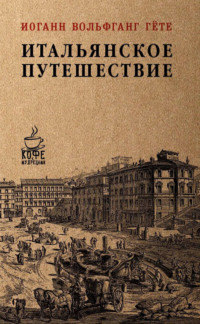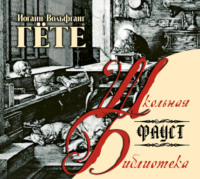
Letters from Switzerland and Travels in Italy
We found a venerable, naturally noble lady, who received us with the words, "Pray look round my room, gentlemen; here you still see all that my dear departed husband collected and arranged for me. This I owe to the affection of my son, who not only allows me still to reside in his best room, but has even forbidden the least thing to be taken away or removed that his late father purchased for me, and chose a place for. Thus I enjoy a double pleasure; not only have I been able these many years to live in my usual ways and habits, but also I have, as formerly, the opportunity to see and form the acquaintance of those worthy strangers who come hither from widely distant places to examine our treasures."
Catania – The Prince Biscani's Palace
She thereupon, with her own hands, opened for us the glass-case in which the works in amber were preserved. The Sicilian amber is distinguished from the northern, by its passing from the transparent and non-transparent, – from the wax and the honey-coloured, – through all possible shades of a deep yellow, to the most beautiful hyacinthian red. In the case there were urns, cups, and other things, and for executing which large pieces of a marvellous size must have been necessary; for such objects, and also for cut-shells, such as are executed at Trapani, and also for exquisitely manufactured articles in ivory, the Princess had an especial taste, and about some of them she had amusing stories to tell. The Prince called our attention to those of more solid value among them; and so several hours slipped away – not, however, without either amusement or edification.
In the course of our conversation, the Princess discovered that we were Germans: she therefore asked us after Riedesel, Bartels, and Münter, all of whom she knew, and whose several characters she seemed well able to appreciate, and to discriminate. We parted reluctantly from her, and she seemed also unwilling to bid us farewell. An insular life has in it something very peculiar to be thus excited and refreshed by none but passing sympathies.
From the palace the Abbé led us to the Benedictine Monastery, and took us to the cell of a brother of the order, whose reserved and melancholy expression (though he was not of more than the middle age) promised but little of cheerful conversation. He was, however, the skilful musician who alone could manage the enormous organ in the church of this monastery. As he rather guessed than waited to hear our request, so he complied with it in silence. We proceeded to the very spacious church, where, sitting down at the glorious instrument, he made its softest notes whisper through its remotest corners, or filled the whole of it with the crash of its loudest tones.
If you had not previously seen the organist, you would fancy that none but a giant could exercise such power; as, however, we were already acquainted with his personal appearance, we only wondered that the necessary exertion had not long since worn him out.
Catania, Friday, May 4, 1787.
Soon after dinner our Abbé arrived with a carriage, and proposed to show us a distant part of the city. Upon entering it we had a strange dispute about precedence. Having got up first, I had seated myself on the left-hand side. As he ascended, he begged of me to move, and to take the right-hand seat. I begged him not to stand on such ceremony. "Pardon me," he replied, "and let us sit as I propose; for if I take my place on your right, every one will believe that I am taking a ride with you; but if I sit on your left, it is thereby indicated that you are riding with me, that is, with him who has, in the Prince's name, to show you the city." Against this nothing could, of course, be objected, and it was settled accordingly.
We drove up the streets where the lava, which, in 1699, destroyed a great part of this city, remains visible to this day. The solid lava had been worked like any other rock, – streets had even been marked out on its surface, and partly built. I placed under the seat of the carriage an undoubted specimen of the molten rock, remembering that, just before my departure from Germany, the dispute had arisen about the volcanic origin of basalt. And I did so in many other places, in order to have several varieties.
However, if natives had not proved themselves the friends of their own land, had they not even laboured, either for the sake of profit or of science, to bring together whatever is remarkable in this neighbourhood, the traveller would have had to trouble himself long, and to little purpose. In Naples I had received much information from the dealer in lava, but still more instruction did I get here from the Chevalier Gioeni. In his rich and excellently arranged museum I learned more or less correctly to recognise the various phenomena of the lava of Ætna; the basalt at its foot, stones in a changed state – everything, in fact, was pointed out tome in the most friendly maimer possible. What I saw most to be wondered at, was some zeolites from the rugged rocks which rise out of the sea below Jaci.
As we inquired of the Chevalier which was the best course to take in order to ascend Ætna, he would not hear of so dangerous an attempt as trying to reach the summit, especially in the present season of the year. "Generally," he observed, begging my pardon, however, "the strangers who come here think far too lightly of the matter; we, however, who are neighbours of the mountain, are quite contented if, twice in our life, we hit on a very good opportunity to reach the summit. Brydone, who was the first by his description to kindle a desire to see this fiery peak, did not himself ascend it. Count Borch leaves his readers in uncertainty; but, in fact, even he ascended only to a certain height: and the same may be said of many others. At present the snow comes down far too low, and presents insuperable obstacles. If you would take my advice, you will ride very early some morning for Monte Rosso, and be contented with ascending this height. From it you will enjoy a splendid view of Ætna, and at the same time have an opportunity of observing the old lava, which, bursting out from that point in 1697, unhappily poured down upon the city. The view is glorious and distinct; it is best to listen to a description for all the rest."
Catania, Saturday, May 5, 1787.
Sicily – Catania
Following this good counsel, we set out early on a mule; and, continually looking behind us on our way, reached at last the region of the lava, as yet unchanged by time. Jagged lumps and slabs stared us in the face, among which a chance road had been tracked out by the beasts. We halted on the first considerable eminence. Kniep sketched with wonderful precision, what lay before us. The masses of lava in the foreground, the double peak of Monte Rosso on the left, right before us the woods of Nicolosi, out of which rose the snow-capped and slightly smoking summit. We drew near to the Red Mountain. I ascended it. It is composed entirely of red volcanic rubbish, ashes, and stones, heaped together. It would have been very easy to go round the mouth of the crater, had not a violent and stormy east wind made my footing unsteady. When I wished to go a little way, I was obliged to take off my cloak, and then my hat was every moment in danger of being blown into the crater, and I after it. On this account I sat down in order to recover myself, and to take a view of the surrounding objects; but even this position did not help meat all. The wind came direct from the east, over the glorious land which, far and near, and reaching to the sea, lay below me. The outstretched strand, from Messina to Syracuse, with its bays and headlands, was before my eyes, either quite open, or else (though only in a few small points) covered with rocks. When I came down quite numbed, Kniep, under the shelter of the hill, had passed his time well, and with a few light lines on the paper had perpetuated the memory of what the wild storm had allowed me scarcely to see, and still less to fix permanently in my mind.
Returned once more to the jaws of the Golden Lion, we found the waiter, whom we had with difficulty prevented from accompanying us. He praised our prudence in giving up the thought of visiting the summit, but urgently recommended for the next day a walk by the sea to the rocks of Jaci – it was the most delightful pleasure-trip that could be made from Catania: but it would be well to take something to eat and drink with us, and also utensils for warming our viands. His wife offered herself to perform this duty. Moreover, he spoke of the jubilee there was when some Englishmen hired a boat with a band of music to accompany them – which made it more delightful than it was possible to form any idea of.
The rocks of Jaci had a strong attraction for me; I had a strong desire to knock off from them as fine zeolites as I had seen in Gioeni's possession. It was true we might reduce the scale of the affair, and decline the attendance of the wife; but the warning of the Englishman prevailed over every other consideration. We gave up all thoughts of zeolites, and prided ourselves not a little at this act of self-denial.
Catania, Sunday, May 6, 1787.
Our clerical companion has not failed us to-day. He conducted us to some remains of ancient architecture; in examining which, however, the visitor needs to bring with him no ordinary talent of restoration. We saw the remains of the great cisterns of a naumachy, and other similar ruins, which, however, have been filled up and depressed by the many successive destructions of the city by lava, earthquakes, and wars. It is only those who are most accurately acquainted with the architecture of the ancients that can now derive either pleasure or instruction from seeing them.
The kind Abbé engaged to make our excuses for not waiting again on the Prince, and we parted with lively expressions of mutual gratitude and good will.
Taormina, Monday, May 7, 1787.
Sicily – Taormina
God be thanked that all that we have here seen this day has been already amply described – but still more, that Kniep has resolved to spend the whole of to-morrow in the open air, taking sketches. When you have ascended to the top of the wall of rocks, which rise precipitously at no great distance from the sea, you find two peaks, connected by a semi-circle. Whatever shape this may have had originally from Nature has been helped by the hand of man, which has formed out of it an amphitheatre for spectators. Walls and other buildings have furnished the necessary passages and rooms. Right across, at the foot of the semicircular range of seats, the scene was built, and by this means the two rocks were joined together, and a most enormous work of nature and art combined.
Now, sitting down at the spot where formerly sat the uppermost spectators, you confess at once that never did any audience, in any theatre, have before it such a spectacle as you there behold. On the right, and on high rocks at the side, castles tower in the air-farther on the city lies below you; and although its buildings are all of modern date, still similar ones, no doubt, stood of old on the same site. After this the eye falls on the whole of the long ridge of Ætna, then on the left it catches a view of the sea-shore, as far as Catania, and even Syracuse, and then the wide and extensive view is closed by the immense smoking volcano, but not horribly, for the atmosphere, with its softening effect, makes it look more distant, and milder than it really is.
If now you turn from this view towards the passage running at the back of the spectators, you have on the left the whole wall of the rocks between which and the sea runs the road to Messina. And then again you behold vast groups of rocky ridges in the sea itself, with the coast of Calabria in the far distance, which only a fixed and attentive gaze can distinguish from the clouds which rise rapidly from it.
We descended towards the theatre, and tarried awhile among its ruins, on which an accomplished architect would do well to employ, at least on paper, his talent of restoration. After this I attempted to make a way for myself through the gardens to the city. But I soon learnt by experience what an impenetrable bulwark is formed by a hedge of agaves planted close together. You can see through their interlacing leaves, and you think, therefore, it will be easy to force a way through them; but the prickles on their leaves are very sensible obstacles. If you step on these colossal leaves, in the hope that they will bear you, they break off suddenly; and so, instead of getting out, you fall into the arms of the next plant. When, however, at last we had wound our way out of the labyrinth, we found but little to enjoy in the city; though from the neighbouring country we felt it impossible to part before sunset. Infinitely beautiful was it to observe this region, of which every point had its interest, gradually enveloped in darkness.
Below Taormina: on the Sea-shore,
Tuesday, May 8, 1787.
Kniep, whom, by good luck, I brought with me hither, cannot be praised enough for relieving me of a burden which would have been intolerable to me, and which goes directly counter to my nature. He has gone to sketch in detail the objects which yesterday he took a general survey of. He will have to point his pencil many a time, and I know not when he will have finished, I shall have it in my power to see all these sights again. At first I wished to ascend the height with him; but then, again, I was tempted to remain here; I sought a corner like the bird about to build its nest. In a sorry and neglected peasant's garden I have seated myself, on the trunk of an orange-tree, and lost myself in reveries. Orange-branches, on which a traveller can sit, sounds rather strangely; but seems quite natural when one knows that the orange-tree, left to nature, sends out at a little distance from the root, twigs, which, in time, become decided branches.
And so, thinking over again the plan of the "Nausicaa," I formed the idea of a dramatic concentration of the "Odyssey." I think the scheme is not impracticable, only it will be indispensable to keep clearly in view the difference of the Drama and the Epopée.
Kniep has come down, quite happy and delighted, and has brought back with him two large sheets of drawing-paper, covered with the clearest outlines. Both will contribute to preserve in my mind a perpetual memory of these glorious days.
It must not be left unrecorded, that on this shore, and beneath the clearest sky, we looked around us, from a little, balcony, and saw roses, and heard the nightingales. These we are told sing here during at least six months of the twelve.
From MemoryThe activity of the clever artist who accompanies me, and my own more desultory and feeble efforts, having now assured me the possession of well-selected sketches of the country and its most remarkable points (which, either in outline, or if I like, in well-finished paintings, will be mine for ever), I have been able to resign myself more entirely to an impulse which has been daily growing in strength. I have felt an irresistible impulse to animate the glorious scenes by which I am surrounded – the sea, the island, the heavens, with appropriate poetical beings, and here, in and out of this locality, to finish a composition in a tone and spirit such as I have not yet produced. The clear sky; the smell of the sea, the halo which merges, as it were, into one the sky, the headlands, and the sea – all these afforded nourishment to my purpose; and whilst I wandered in those beautiful gardens, between blossoming hedges of oleander, and through arbours of fruit-bearing orange, and citron-trees, and between other trees and shrubs, which were unknown to me, I felt the strange influence in the most agreeable way possible.
Sicily – Sketch of Nausicaa, a tragedy
Convinced that for me there could be no better commentary on the "Odyssey" than even this very neighbourhood, I purchased a copy, and read it, after my own fashion, with incredible interest. But I was also excited by it to produce something of my own, which, strange as it seemed at the first look, became dearer and dearer, and at last took entire possession of me. For I entertained the idea of treating the story of Nausicaa as the subject of a tragedy.
It is impossible for me even to say what I should have been able to make of it, but the plan I had quite settled in my mind. The leading idea was to paint in Nausicaa, an amiable and excellent maiden who, wooed by many suitors, but conscious of no preference, coldly rejected all advances, who, however, falling in love with a remarkable stranger, suddenly alters her own conduct, and by an over-hasty avowal of her affection compromises herself; and consequently gives rise to a truly tragic situation. This simple fable might, I thought, be rendered highly interesting by an abundance of subordinate motives, and especially by the naval and insular character of the locality, and of the personages where and among whom the scene was laid, and by the peculiar tone it would thence assume.
The first act began with the game at ball. The unexpected acquaintance is made; the scruple to lead him herself into the city is already the harbinger of her love.
The second act unfolds the characters of the household of Alcinous, and of the suitors, and ends with the arrival of Ulysses.
The third is devoted entirely to exhibiting the greatness and merits of the new comer, and I hoped to be able in the course of the dialogue, (which was to bring out the history of his adventures), to produce a truly artistic and agreeable effect by representing the various ways in which this story was received by his several hearers. During the narrative, the passions were to be heightened, and Nausicaa's lively sympathy with the stranger to be thrown out more and more by conflicting feelings.
In the fourth act, Ulysses, (off the scene,) gives convincing proofs of his valour; while the women remain, and give full scope to their likings, their hopes, and all other tender emotions. The high favour in which the stranger stands with all, makes it impossible for Nausicaa to restrain her own feelings, and so she becomes irreparably compromised with her own people. Ulysses, who, partly innocent, partly to blame, is the cause of all this, now announces his intention to depart; and nothing remains for the unhappy Nausicaa, but in the fifth act to seek for an end of existence.
In this composition, there was nothing which I was not able by experience to paint after nature. Even while travelling – even in peril – to excite favourable feelings which, although they did not end tragically, might yet prove painful enough, and perhaps dangerous, and would, at all events, leave deep wounds behind – even the supposed accidents of describing, in lively colours, for the entertainment of others, objects observed at a great distance from home, travelling adventures and chances of life – to be looked upon by the young as a demigod, but by the more sedate as a talker of rhodomontade, and to meet now with unexpected favour, and now with unexpected rebuffs – all this caused me to feel so great an attachment to this plan, that in thinking of it, I dreamed away all the time of my stay at Palermo, and, indeed, of all the rest of my Sicilian tour. It was this that made me care little for all the inconvenience and discomfort I met with; for, on this classic ground, a poetic vein had taken possession of me, causing all that I saw, experienced, or observed, to be taken and regarded in a joyous mood.
After my usual habit – whether a good or a bad one – I wrote down little or nothing of the piece; but worked in my mind the most of it, with all the minutest detail. And there, in my mind, pushed out of thought by many subsequent distractions, it has remained until tills moment, when, however, I can recollect nothing but a very faint idea of it.
May 8, 1787. On the road to Messina.
High limestone rocks on the left. They become more deeply coloured as you advance, and form many beautiful caves. Presently there commences a sort of rock which may be called clay slate, or sand-stone (greywacke). In the brooks you now meet pebbles of granite. The yellow apples of the solanum, the red flowers of the oleander, give beauty to the landscape. The little stream of Nisi brings down with it mica-pebbles, as do also all the streams we afterwards came to.
Wednesday, May 9, 1787.
Beaten by a stormy east wind, we rode between the raging sea on the right, and the wall of rocks, from the top of which we were yesterday looking down; but this day we have been continually at war with the water. We had to cross innumerable brooks, of which the largest bears the honourable title of a river. However, these streams, as well as the gravel which they bring down with them, were easier to buffet with than the sea, which was raging violently, and at many places dashed right over the road against the rocks, which threw back the thick spray on the travellers. It was a glorious sight, and its rarity to us made us quite ready to put up with all its inconvenience.
At the same time there was no lack of objects for the mineralogical observer. Enormous masses of limestone, undermined by the wind and the waves, fall from time to time; the softer particles are worn away by the continual motion of the waves, while the harder substances imbedded in them are left behind; and so the whole strand is strewed with variegated flints verging on the hornstone, of which I selected and carried off many a specimen.
Messina, Thursday, May 10, 1787.
Sicily-The road to Messina
And so at last we arrived in Messina, where, as we knew of no lodging, we made up our minds to pass the first night at the quarters of our vetturino, and then look out in the morning for a more comfortable habitation. In consequence of i his resolution, our first entrance gave us the terrible idea of entering a ruined city. For, during a whole quarter of an hour as we rode along, we passed ruin after ruin, before we reached the auberge, which, being the only new building that has sprung up in this quarter, opens to you from its first story window a view of nothing but a rugged waste of ruins. Beyond the circle of the stable yard not a living being of any kind was to be seen. During the night the stillness was frightful. The doors would neither bolt nor even close; there was no more provision here for the entertainment of human guests than at any other of the similar posting stations. However, we slept away very comfortably on a mattress which our vetturino took away from beneath the very body of our host.
Friday, May 11, 1787.
To-day we parted from our worthy muleteer, and a good largesse rewarded him for his attentive services. We parted very amicably, after he had first procured us a servant, to take us at once to the best inn in the place, and afterwards to show us whatever was at all remarkable in Messina. Our first host, in order that his wish to get rid of us might be gratified as quickly as possible, helped to carry our boxes and other packages to a pleasant lodging nearer to the inhabited portion of the city – that is to say, beyond the city itself. The following description will give some idea of it. The terrible calamity which visited Messina and swept away twelve thousand of its inhabitants, did not leave behind it a single dwelling for the thirty thousand who survived. Most of the houses were entirely thrown down; the cracked and shaking walls of the others made them quite unsafe to live in. On the extensive meads, therefore, to the north of Messina, a city of planks was hastily erected, of which any one will quickly form an idea who has ever seen the Römerberg at Frankfort during the fair, or has passed through the market-place at Leipzig; for all the retail houses and the workshops are open towards the street, and the chief business is carried on in front of them. Therefore, there are but few of the larger houses even that are particularly well closed against publicity. Thus, then, have they been living for three years, and the habits engendered by such booth-like, hut-like, and, indeed, tent-like dwellings, has had a decided influence on the character of the occupants. The horror caused by this unparalleled event, the dread of its recurrence, impels them with light-hearted cheerfulness to enjoy to the utmost the passing moment. A dreadful expectation of a fresh calamity was excited on 21st April – only twenty days ago, that is – by an earthquake, which again sensibly shook the ground. We were shown a small church where a multitude of people were crowded together at the very moment, and perceived the trembling. Some persons who were present at the time do not appear even yet to have recovered from their fright.









